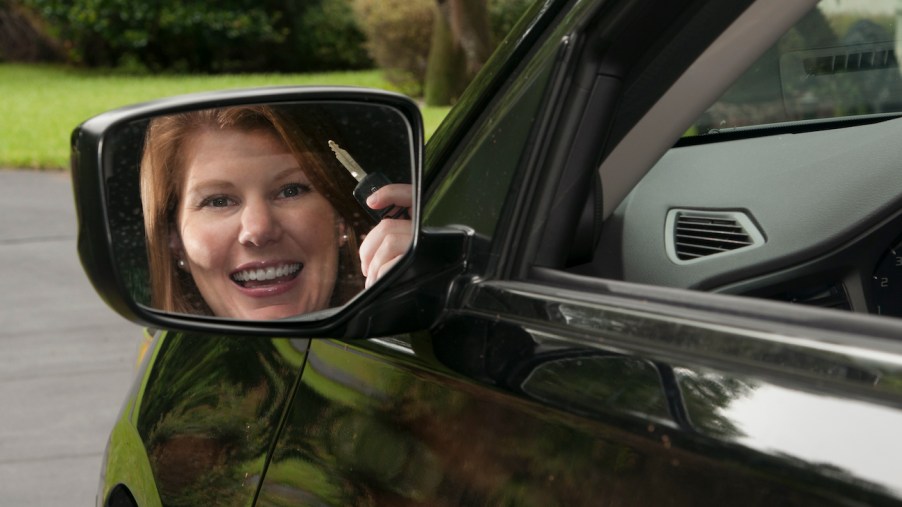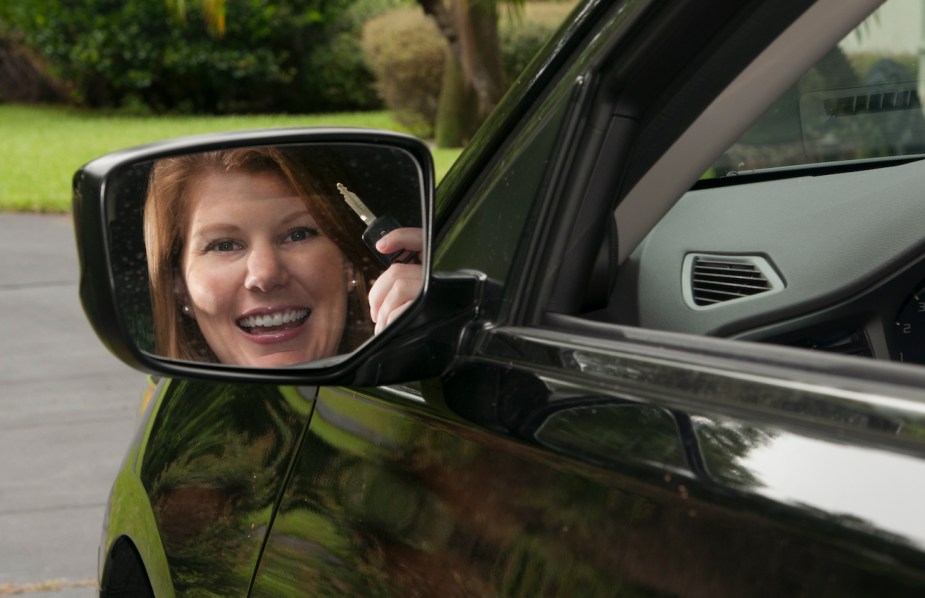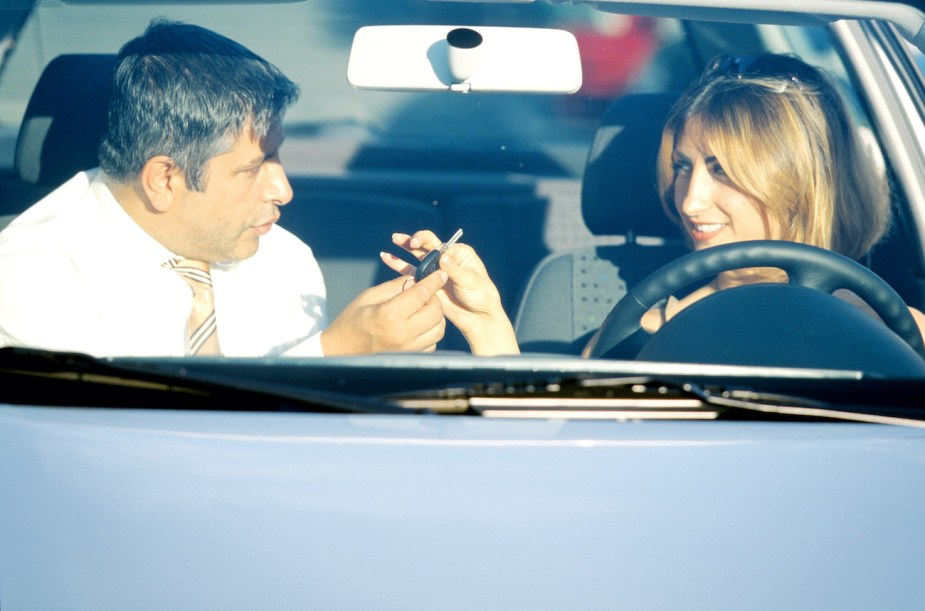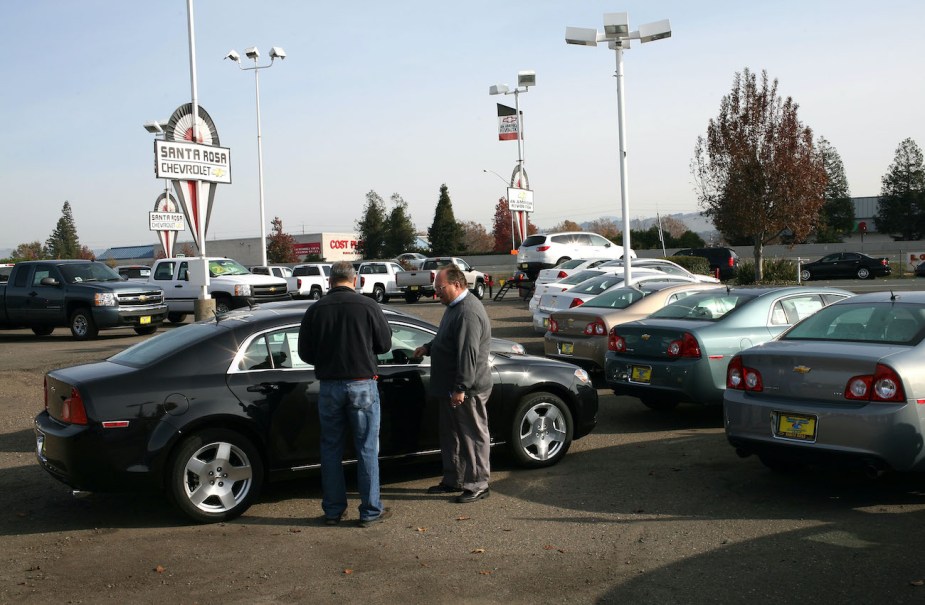
Can I Trade My Car With a Private Party?
Trading, or selling, your car to a dealership is one of the simplest ways to get rid of a car. The process is quick, but it typically leads to getting less money than you originally wanted. But what if you find a private party that wants to trade cars with you? Is that even possible? Let’s find out.
Trading a car to a private party

Trading your car with a private party is possible, but both parties should check with the local DMV to ensure they have the proper documents and follow the necessary procedures. According to Zacks, “For example, in the state of Wisconsin, no notification from the seller is necessary, and there are no special state-required forms to complete. However, the buyer must immediately apply for a title certificate.” However, in a trade agreement, it’s hard to know who the “buyer” and “seller” are.
In that case, it’s important to check with the local DMV before proceeding. In most states, like California, a “Notice of Transfer and Release of Liability” form will need to be filed by both parties. The DMV will then update the records, and both parties will no longer be liable for their own cars.
In order to ensure a smooth transaction, it’s best if both parties go to the DMV. That way, there’s less of a chance for any issues in the future. Proof of insurance will need to be provided by both parties, as well as the original titles for each car.
Trading a car to a private party with an existing loan

If you still have an existing loan on your car, then you can still trade it to a private party. You may need to tell the other party your situation and then conduct the transaction at your bank, if possible That way, the other party will feel more comfortable trading car titles with you.
Just note that the bank may require you to pay off the remainder of the car loan in order to make the transfer. However, you should check with the lender before putting your car up for trade to ensure you take the proper steps. According to Nerd Wallet, “closing the car deal at a local bank or at the DMV is a good idea even when a loan isn’t involved. It provides a safe meeting place and, usually, bank employees can answer questions about vehicle transactions.”
Why would anyone want to trade their car with a private party?

Trading your car with another private party will help you feel like you got a good deal since both parties share the same interest in both cars. Just remember to check Kelley Blue Book or TrueCar to obtain the market value for both cars and ensure that you’re getting a fair deal. In some cases, extra cash from one or both parties could be necessary.
As always, it’s important to have a pre-purchase inspection done on the car that you’re trading for. After all, you wouldn’t want to put in all of the hard work of going to the DMV and signing papers if the car that you trade for ends up being a lemon.



